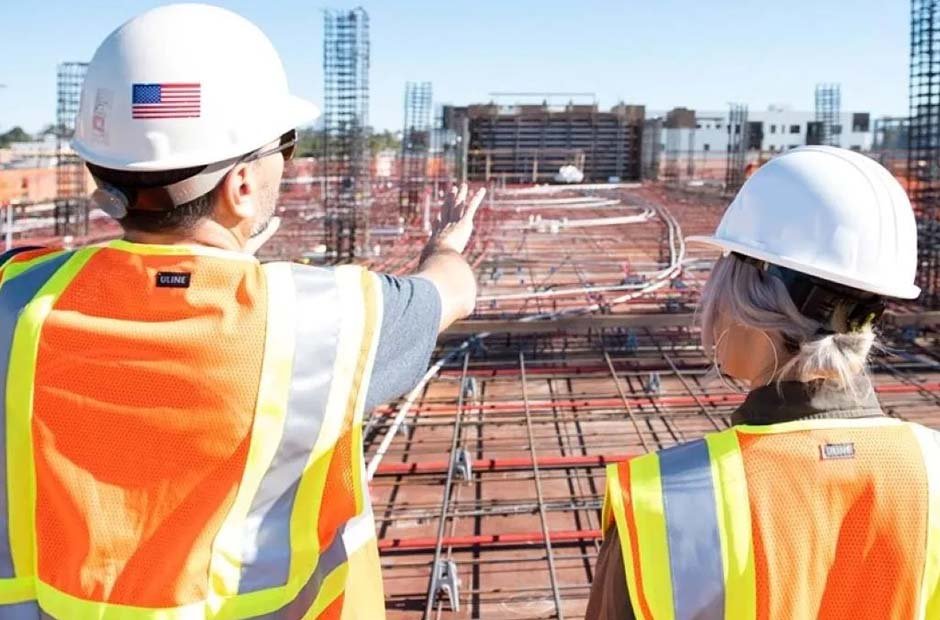General contractors from ADM Contractors, LLC. of Milwaukee play a vital role in the construction industry, overseeing and managing various aspects of building projects from start to finish. Whether residential, commercial, or industrial construction, general contractors ensure that projects are completed on time, within budget, and to the required quality standards. We will explore the responsibilities of general contractors, the benefits of hiring them for construction projects, and key factors to consider when selecting a general contractor. Understanding these aspects will help property owners make informed decisions and ensure the success of their construction endeavors.
Responsibilities of General Contractors
General contractors are responsible for the overall coordination of a construction project. One of their primary duties is project planning. This involves developing a comprehensive plan that outlines the project scope, budget, timeline, and resource requirements. General contractors work closely with architects, engineers, and clients to ensure all project specifications are clearly defined and understood. Effective project planning sets the foundation for a smooth construction process and helps avoid potential issues and delays.
Another crucial responsibility of general contractors is managing the construction site. This includes overseeing the daily operations, ensuring that work is carried out according to the project plan, and maintaining a safe and organized work environment. General contractors coordinate the activities of subcontractors, suppliers, and laborers, ensuring that all tasks are completed on schedule. They also handle any issues that arise during construction, making adjustments as necessary to keep the project on track.
General contractors are also responsible for procurement and logistics. This involves sourcing and purchasing the materials, equipment, and labor needed for the project. Contractors must ensure that all resources are available when needed and that they meet the required quality standards. Effective procurement and logistics management are essential for maintaining project momentum and avoiding costly delays. General contractors also manage the financial aspects of the project, including budgeting, cost control, and payment processing.
Another key responsibility of general contractors is quality control. They ensure that all work meets the specified quality standards and complies with building codes and regulations. General contractors conduct regular inspections and audits to verify that construction work is performed correctly and safely. They also promptly address any deficiencies or non-compliance issues, ensuring that the finished project meets the client’s expectations and regulatory requirements.
Benefits of Hiring a General Contractor
Hiring a general contractor offers numerous benefits that contribute to the success of a construction project. One of the primary advantages is project management. General contractors provide comprehensive project management services, handling all aspects of the construction process from planning and coordination to execution and completion. This allows property owners to focus on their core activities while the contractor manages the complexities of the construction project.
Another significant benefit of hiring a general contractor is cost efficiency. General contractors have extensive experience managing construction projects and can identify cost-saving opportunities. They negotiate with suppliers and subcontractors to secure competitive pricing and ensure that resources are used efficiently. Additionally, general contractors have a network of reliable subcontractors and suppliers, which helps maintain high-quality standards and timely project delivery. By managing the budget effectively, general contractors help prevent cost overruns and ensure the project stays within the allocated budget.
Hiring a general contractor also enhances the quality of the construction work. General contractors have the knowledge and experience to ensure all work is performed to the highest standards. They oversee the work of subcontractors and ensure that all tasks are completed correctly and safely. General contractors maintain quality control throughout the construction process by conducting regular inspections and audits. This results in a finished project that meets the client’s specifications and adheres to all relevant building codes and regulations.
Time management is another critical benefit of hiring a general contractor. Construction projects often involve tight schedules and deadlines. General contractors develop detailed project schedules and timelines, coordinating the activities of all parties involved to ensure that tasks are completed on time. They monitor progress closely and adjust as needed to keep the project on track. By effectively managing time, general contractors help ensure the project is completed within the agreed-upon timeframe, avoiding costly delays and disruptions.
Additionally, general contractors provide risk management services. Construction projects involve various risks, including safety hazards, financial risks, and legal liabilities. General contractors identify and mitigate these risks through careful planning, site management, and adherence to safety protocols. They also carry insurance coverage that protects property owners from potential liabilities and losses. By managing risks effectively, general contractors help ensure the safety and success of the construction project.
Choosing the Right General Contractor
Selecting the right general contractor is crucial for the success of a construction project. One of the first factors to consider is the contractor’s reputation. Look for a general contractor with a history of satisfied clients and positive reviews. Reading online reviews and asking for references from previous clients can provide valuable insights into the contractor’s reliability and quality of service. Consistent positive feedback regarding punctuality, professionalism, and the quality of the work performed is a good indicator of a reputable contractor.
Experience and qualifications are also important considerations. An experienced general contractor is more likely to have encountered a wide range of construction challenges and can provide effective solutions. Ask about the contractor’s experience with similar projects and familiarity with the latest construction techniques and technologies. Additionally, ensure that the contractor is licensed and insured, as this protects against accidents or damage during the construction process.
Another critical factor is the range of services offered. A comprehensive general contractor should provide various services, including project planning, site management, procurement, quality control, and risk management. This ensures you can rely on them for all aspects of your construction project, from initial planning to completion. Additionally, find out if the contractor offers any guarantees or warranties on their work, which can provide additional peace of mind.
Effective communication is key when working with a general contractor. Choose a contractor who is responsive to your inquiries and takes the time to explain the services and processes in detail. Clear and transparent communication ensures that you are informed throughout the project and can make informed decisions. A contractor who values good communication will likely provide a positive and stress-free experience.
Finally, consider the cost of services. While finding a contractor who offers competitive pricing is important, it is equally important to ensure that the services provided offer good value for money. Be wary of quotes that seem unusually low, as these may indicate subpar materials or workmanship. Conversely, excessively high quotes do not necessarily guarantee superior quality, so weighing all factors before deciding is essential.
Conclusion
General contractors are crucial in successfully executing construction projects by providing comprehensive project management, cost efficiency, quality control, time management, and risk management services. When selecting a general contractor, it is important to consider factors such as reputation, experience, range of services, communication, and cost. By making informed decisions and choosing a reliable general contractor, property owners can ensure the success of their construction projects and achieve their desired outcomes.
















